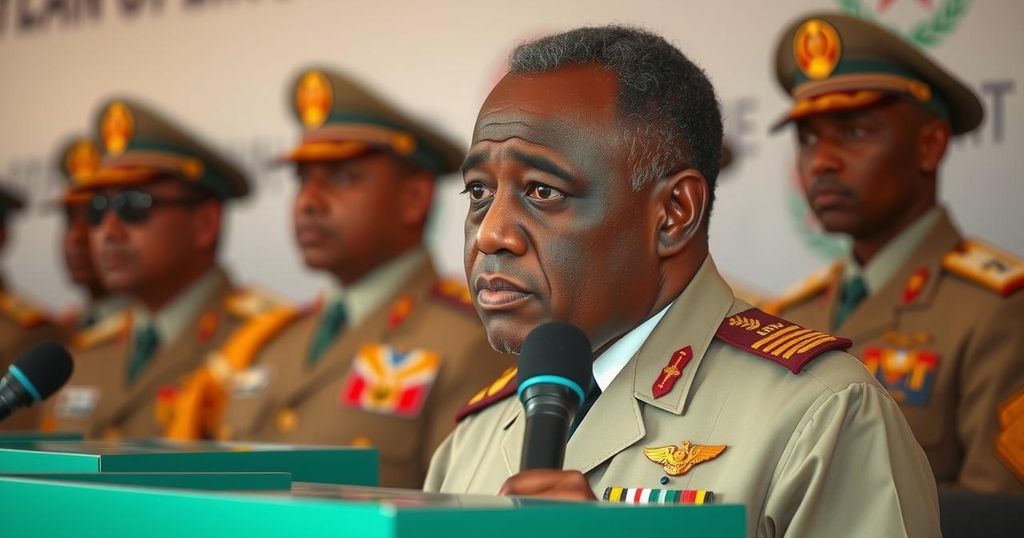Chad Votes Amid Opposition Boycott: A Test of Legitimacy After Military Rule

Chad held elections on Sunday for legislative, provincial, and local offices amid an opposition boycott. The elections, seen as a final step in transitioning from military rule, allowed candidates loyal to Marshal Mahamat Idriss Itno to dominate. Allegations of electoral fraud and media blackout raise serious questions regarding the integrity of the electoral process.
Chad conducted elections on Sunday, encompassing legislative, provincial, and local positions, in what the government has termed the final phase of a political transition following three years of military governance. However, these elections have faced a boycott from opposition parties, which permits candidates loyal to Marshal Mahamat Idriss Itno, who assumed power after a military-led takeover in 2021, to dominate the electoral landscape. Opposition member Succes Masra publicly condemned the elections as fraudulent and preferred abstention from participation, asserting that “it is better to stay at home” due to the alleged systemic corruption and electoral manipulation.
The Democratic Party of the Chadian People (PDPT), an opposition faction, has reported the disappearance of over a thousand ballots in the Bongor sub-prefecture, urging citizens to remain vigilant against potential fraud, which, according to them, has been orchestrated by the ruling MPS party. Polling stations operated from 6 AM to 6 PM for roughly eight million registered voters, who were monitored by around one hundred foreign observers amidst various security challenges, including attacks from Boko Haram.
Marshal Mahamat Idriss Itno consolidated his authority in May through a contested presidential election, inheriting the mantle of governance from his late father, Idriss Deby Itno, who had reigned for thirty years. The absence of legislative elections since 2011, compounded by a transition parliament established via a presidential decree, reflects issues plaguing Chad’s political landscape.
The opposition has voiced strong concerns regarding increasing autocracy and repression under Itno’s regime, notably referencing the violent crackdown on protests against the government in October 2022. Challenges to the electoral process are intensified by a near-total media blackout stemming from a protest by online journalists against government-imposed restrictions, exacerbated by the authorities’ failure to provide customary subsidies for election coverage in private media. While the ruling party has attempted to rally public support, the prevailing atmosphere remains fraught with skepticism and lack of enthusiasm among citizens regarding the electoral process.
Chad’s recent elections signify a crucial turning point following three years of military rule, initiated after the death of long-time leader Idriss Deby Itno. The country has experienced delays in holding elections due to various factors, including security threats from jihadist groups and the COVID-19 pandemic. The incumbent, Marshal Mahamat Idriss Itno’s government purports that these elections are a step towards establishing legitimate democratic governance, despite opposition claims of election rigging and increasing authoritarianism. The political context is complicated further by the involvement of Chad in regional conflicts, including the unrest in Sudan and the resurgence of threats from Boko Haram.
The elections in Chad reflect a deeply fragmented political climate marked by opposition boycotts and claims of electoral fraud. While the ruling government portrays the elections as a pathway to democracy, significant concerns over transparency and legitimacy persist among various opposition groups. As the country grapples with ongoing security challenges and a constrained media landscape, the future of democratic governance in Chad remains uncertain.
Original Source: www.barrons.com







